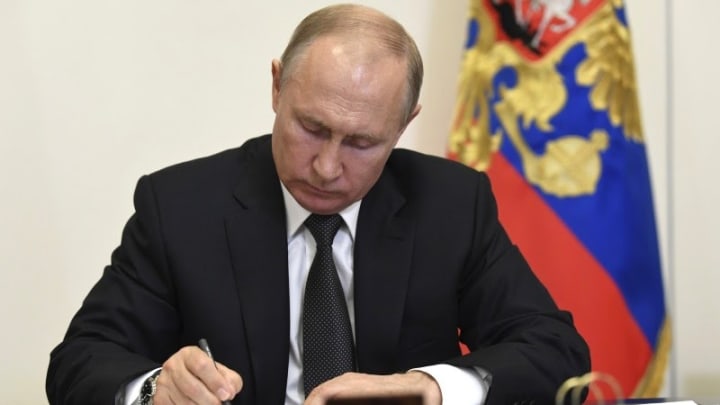
BURLINGTON, Vt. — In the wake of reports that Russian hackers infiltrated numerous U.S. federal agencies, a former national security official said Tuesday that the U.S. Agency for International Development’s framework for countering Kremlin influence could offer a useful blueprint for the rest of the government to follow.
USAID released its “Countering Malign Kremlin Influence” development framework in 2019 — on America’s Independence Day — in an effort to help partner countries better withstand Russian government meddling. Speaking at the German Marshall Fund on Tuesday, some of the architects of the framework reflected on its implementation so far and noted that the U.S. has sometimes failed to recognize that the activities USAID seeks to confront also present threats at home.
“Many of the vulnerable, fragile countries of the region have proven to be backdoors into attacks on us as well in the United States, as well as more broadly in Europe,” said Fiona Hill, senior fellow at the Brookings Institution.
USAID 'countering Kremlin' framework is not about Russia, officials say
USAID has launched a "Countering Malign Kremlin Influence" framework. Agency officials want to make clear that it shouldn't be seen as an attempt to divide countries between the U.S. and Russia.
“We have sometimes had a failure of imagination ourselves to see how the same tactics could be applied against us,” Hill said, adding that Kremlin-sponsored interventions in the 2016 U.S. presidential election “woke all of us up to the potential and the possibilities that our own democracy could be attacked in that way.”
Hill, who served on President Donald Trump’s National Security Council until July 2019 and became a household name in the U.S. when she testified during Trump’s impeachment hearings, worked with USAID to develop the CMKI framework.
It focuses on four objectives: countering Kremlin efforts to undermine democracy and rule of law; resisting manipulation of information; reducing energy vulnerabilities; and reducing economic vulnerabilities.
“I would actually hazard to say that the framework that USAID has developed for fragile states in Eastern Europe and in some of the former Soviet space could also be applied here at home,” Hill said.
The framework “could be adapted as we think forward about how we start to strengthen the resilience of our own democracy, which has taken some hits over the last several years,” she added.
“As a country, and as a people, we find ourselves on the defensive too often. We overlook the flaws and setbacks that we have as a political system and as an economy.”
— Mark Green, former administrator, USAIDPresident-elect Joe Biden has suggested he intends to create closer links between U.S. foreign and domestic policy, and his platform specifically charges that Trump’s “failure to uphold basic democratic principles” has “surrendered our position in the world.”
Biden has pledged to host a global “Summit for Democracy,” aimed at signaling his administration’s desire to position the U.S. as a leader on strengthening democratic institutions and preventing democratic backsliding.
Mark Green, who served as Trump’s USAID administrator when the CMKI framework was released, said Tuesday that the U.S. government should approach its efforts to help countries resist foreign interference “with a sense of humility.”
“As a country, and as a people, we find ourselves on the defensive too often. We overlook the flaws and setbacks that we have as a political system and as an economy,” Green said, adding that the U.S. should advance a “hopeful” vision of democratic partnership.
“If we find ourselves caught up in a tit for tat with authoritarian sharp power, in some ways we foster that sense of complexity and confusion, which is what [Russian President Vladimir] Putin’s hoping for anyway,” he added.
In response to an inquiry from Devex, USAID’s acting Spokesperson Pooja Jhunjhunwala wrote that the agency is not among those affected by the reported cyber attack and, “has not had to communicate any related data security breaches to affected partners.” The Department of State was among those listed in news reports.
Update, December 16, 2020: This story has been updated to include a comment from USAID received after this article was published.




